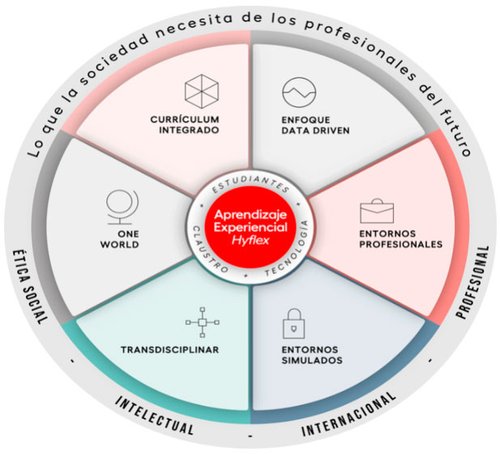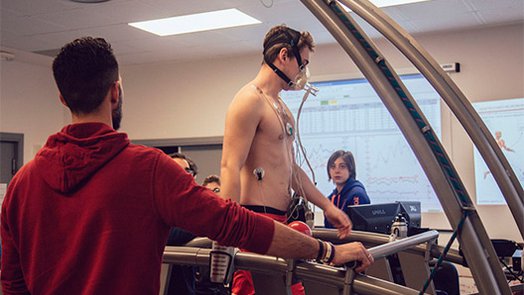
Experiential Learning Academic Model
The Academic Model at Universidad Europea, focused on Experiential Learning, addresses the needs of the professional world, trends in Higher Education, and the digital transformation in the learning process. It provides students with an educational experience that enables them to acquire the knowledge, skills, and values that enhance their employability in a globalized world.
The model ensures a graduate profile encompassing four dimensions: intellectual, professional, international, and ethical-social. These are brought into the classroom through six educational pillars: simulated environments, professional settings, integrated curriculum, interdisciplinary education, data-driven focus, and socio-ethical and environmental commitment.
This core of teaching and learning is enriched by close student-teacher interaction, supported by highly advanced technological infrastructure. The academic excellence of the faculty at Universidad Europea and the high level of student satisfaction with their instructors ensure successful training outcomes.
In addition to faculty support, our model places great importance on the guidance provided to students by various university stakeholders, such as academic advisors. The goal is to ensure a smooth integration for students, encourage their independence, and motivate them to engage in university life, taking full advantage of the opportunities they will encounter throughout their university education.
HyFlex
The HyFlex Model integrates in-person and virtual classrooms, redesigning the learning space so that students can learn from their own experiences, guided by a highly qualified faculty trained in educational technology. The model is built on three foundations applied across all the academic programs offered at Universidad Europea:
We maximize the technology present in all our classrooms to provide an immersive experience, with the instructor as the facilitator of a real-time interactive learning experience through cameras, 360-degree microphones, and smart boards in every classroom.
The extended classroom at Universidad Europea also allows us to utilize various digital tools to virtualize practical classes. Thanks to simulation environments, gamification, and virtual labs, among others, we can reach areas that the real world cannot. There is no limit to the number of practical classes, creating safe environments to build confidence and achieve maximum academic excellence.
The immersive experience allows for:
- Participation and Interaction: Engagement between in-person students, remote students, and the professor.
- We create dynamics with integrative conversations and debates between in-person and remote students to enrich your learning process.
4o mini

